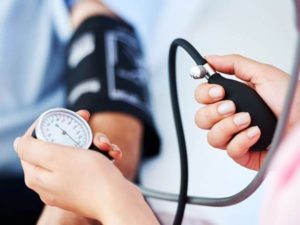World Hypertension Day (17 May) once again brings to attention the risks of high blood pressure (hypertension), a condition that affects one in three South African adults.
Pharma Dynamics, SA’s leading provider of cardiovascular medicine, encourages the public to get their blood pressure tested in order to manage the chronic disease early on.
Since hypertension rarely exhibits any symptoms, it often goes undetected and untreated – increasing your risk of a heart attack, stroke or heart failure. The only way of knowing whether you are at risk is to get yourself tested, and World Hypertension Day offers the perfect opportunity.
So says Nicole Jennings, spokesperson for Pharma Dynamics – SA’s leading provider of cardiovascular medicine.
“We are encouraging the public to get themselves tested in the wake of World Hypertension Day (17 May), which has been set aside to educate people about the risks of the disease.”
She says hypertension leads to heart attacks, strokes, heart failure, kidney disease, metabolic syndrome, memory loss and even dementia.
“It is a debilitating disease, which affects many South African adults. Because it develops slowly over time, many don’t realise they have it and when they do, it’s often too late.”
“Factors that increase your risk of hypertension include age, family history, obesity, sedentary living, smoking, stress, eating too much salt (sodium) and drinking too much alcohol.
“The best way to protect yourself from a heart attack or stroke, is to get your blood pressure checked at either a pharmacy or GP, at least once a year.”
What is blood pressure and how is it measured?
Blood pressure is the pressure of the blood pushing against the walls of your arteries, which carry blood from your heart to the rest of your body. Your blood pressure normally rises and falls throughout the day, depending on your activity/stress level and what you consume.”
It is measured using two numbers:
- The first number, called systolic blood pressure, measures the pressure in your arteries when your heart beats.
- The second number, called diastolic blood pressure, measures the pressure in your arteries when your heart rests between beats.
If the measurement reads 120 systolic and 80 diastolic, it would be expressed as, 120 over 80 or 120/80 mmHg. A normal blood pressure level is less than 120/80 mmHg.
Can it be cured?
Jennings says while hypertension cannot be cured, the good news is that it can be effectively managed through lifestyle changes and medication.
“The best way to improve your blood pressure is to make healthy lifestyle choices.”
She recommends:
- Half an hour of exercise five to seven days a week.
- Maintaining a healthy body mass index of between 18.5 and 24.5 kg/m2 .
- Eating a diet rich in fresh fruit and vegetables.
- Limiting salt intake to 5g (one level teaspoon) per day or less.
- Reducing alcohol intake.
- Quitting smoking
For more tips on heart-healthy living/eating, visit https://www.mydynamics.co.za/ and https://cookingfromtheheart.co.za/





